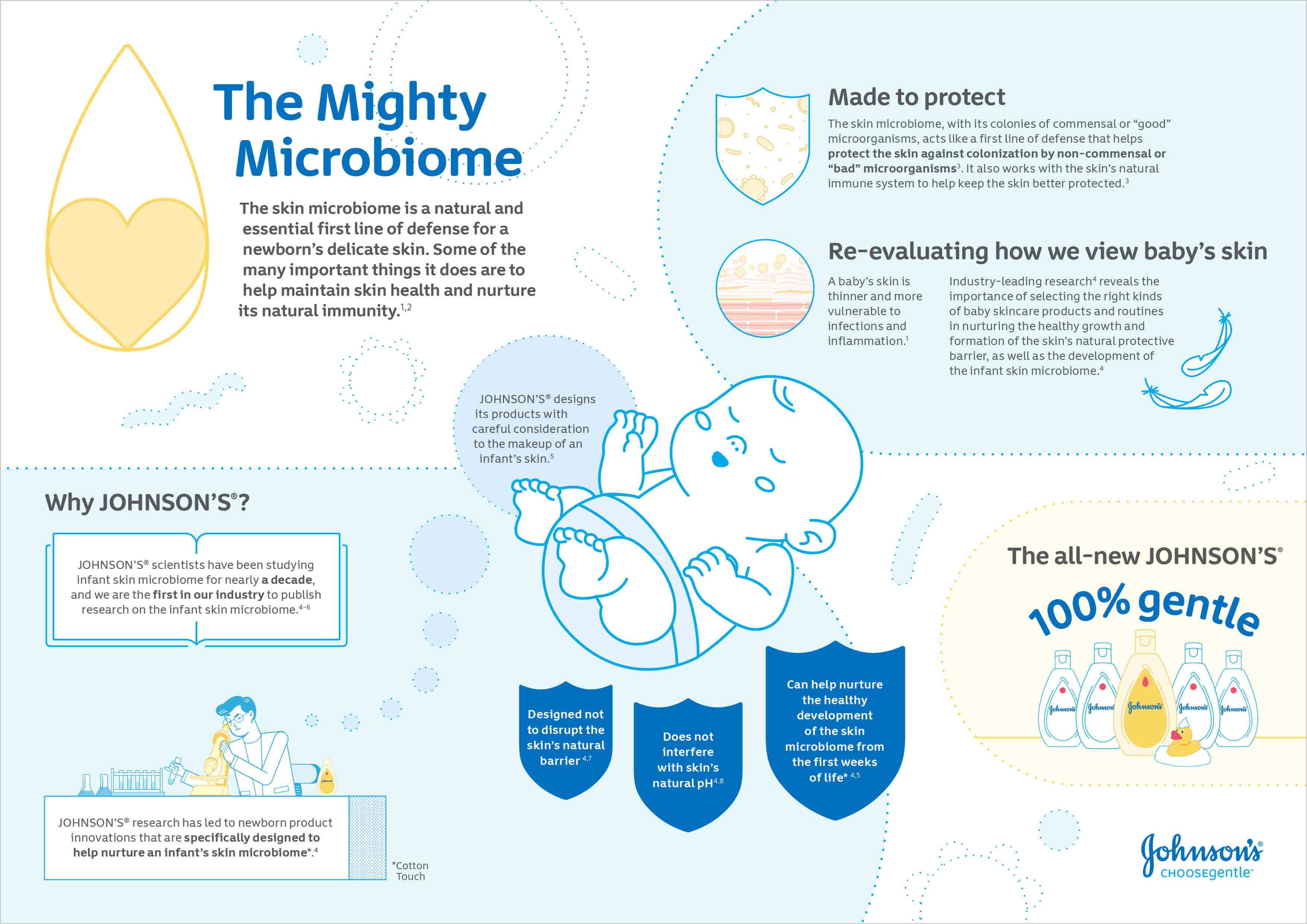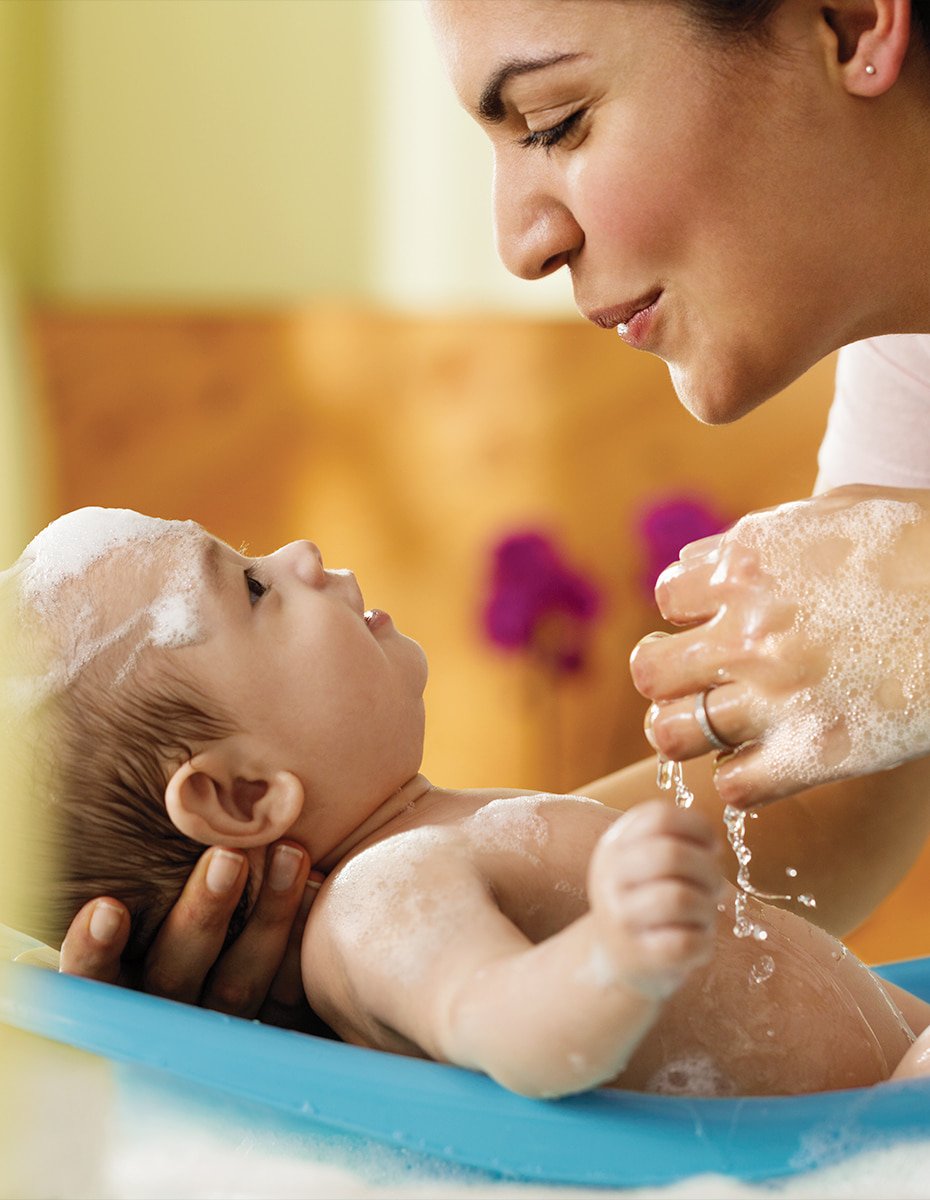Microbiome Care That Goes Beyond Cleaning
In the precious first few months, a baby’s skin is extremely delicate and needs special care. So it’s important that parents have all the relevant information about their baby’s skincare needs.
That’s why we have created a simple easy-to-print guide you can share with parents that answers some of their basic questions and misconceptions.
Discover the science behind the skin microbiome.
See how JOHNSON’s® is pioneering research to support and nurture healthy development of the skin microbiome.
Protecting the Microbiome
Skin is the largest organ that undergoes remarkable transformation at the time of birth. At birth the fetus is suddenly removed from a protected intra-uterine environment that is aquatic, warm, and nearly sterile, to the dry, cold external world laden with microbes. To survive, the neonate must interact with many organisms, making use of some, while vigorously defending against the others like a nation conducting trade with friendly countries and guarding against hostile ones from invading it, waging wars if necessary.
Within days after birth, rapid surface colonization of infant skin is observed. Trillions of bacteria, fungi, viruses, archaea, and small arthropods colonize the skin surface, collectively comprising the skin microbiome. Exposure to a biologically rich and diverse environment can help ensure the natural development of a healthy skin microbiome and may encourage general immune health of the infant. Approx. 1 billion bacteria inhabit a typical square centimeter of skin—covering the surface and extending down into the appendages and glands. Healthy skin with a diverse skin microbiome is a rather inhospitable environment for microbial growth.
Timely and proper establishment of healthy skin microbiome during this early period might have a pivotal role in denying access to potentially infectious microbes and could affect microbiome composition and stability extending into adulthood. Early microbial colonization is therefore expected to critically affect the development of the skin immune function.
Changes in microbial composition and function, in the skin have recently been linked to alterations in immune responses and to the development of skin diseases, such as atopic dermatitis (AD).
Disease flares of established atopic dermatitis (AD) are generally associated with a low-diversity skin microbiota and Staphylococcus aureus dominance.
A healthy skin microbiome contributes to infection prevention by inhibiting growth of pathogens like staph aureus. A diverse microbiome leads to a healthy immunomodulation and arrests the atopic march. A healthy skin microbiome is passport to good health for a lifetime.






By registering, you agree to receive additional transactional, marketing/promotional and sample material from the Johnson's Baby Professional website. Your personal information will be used to fulfill your request for samples and/or patient education materials. Your information will be shared only with JNTL Consumer Health (Philippines) Inc., its affiliates, and any third parties working on their behalf to fulfill your request, and will be governed by our site's Privacy Policy.